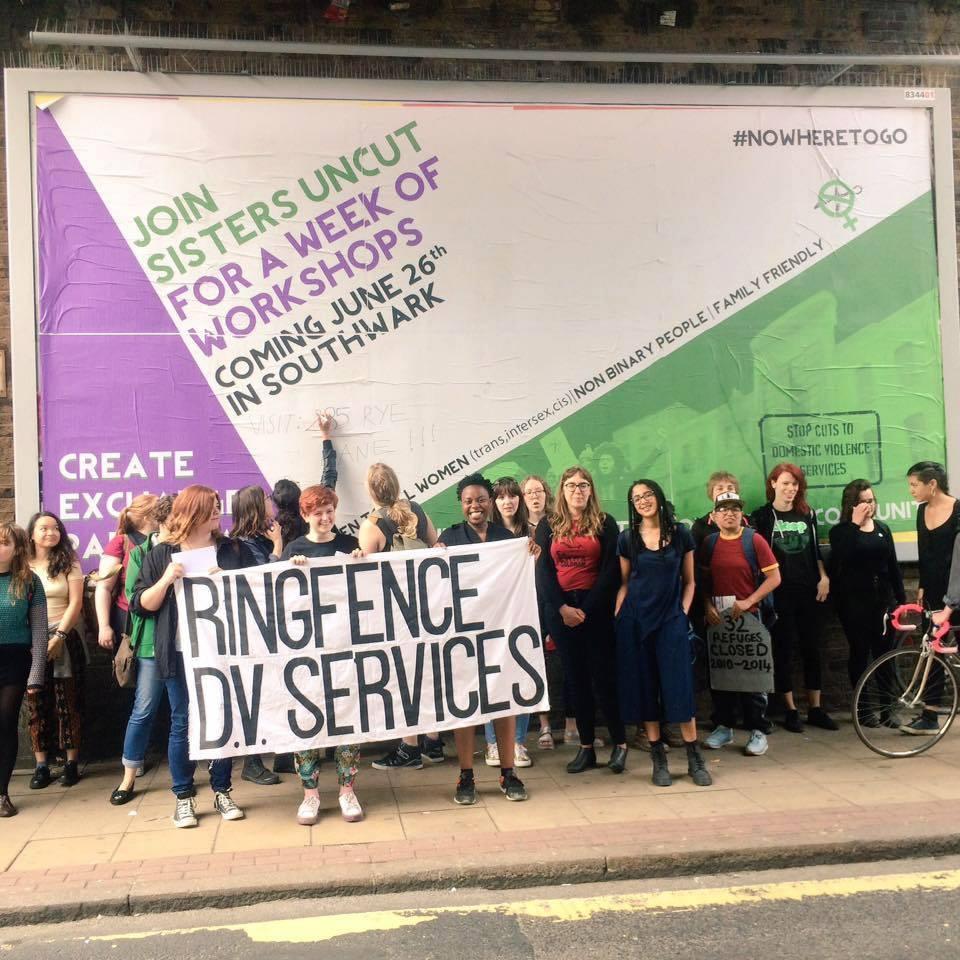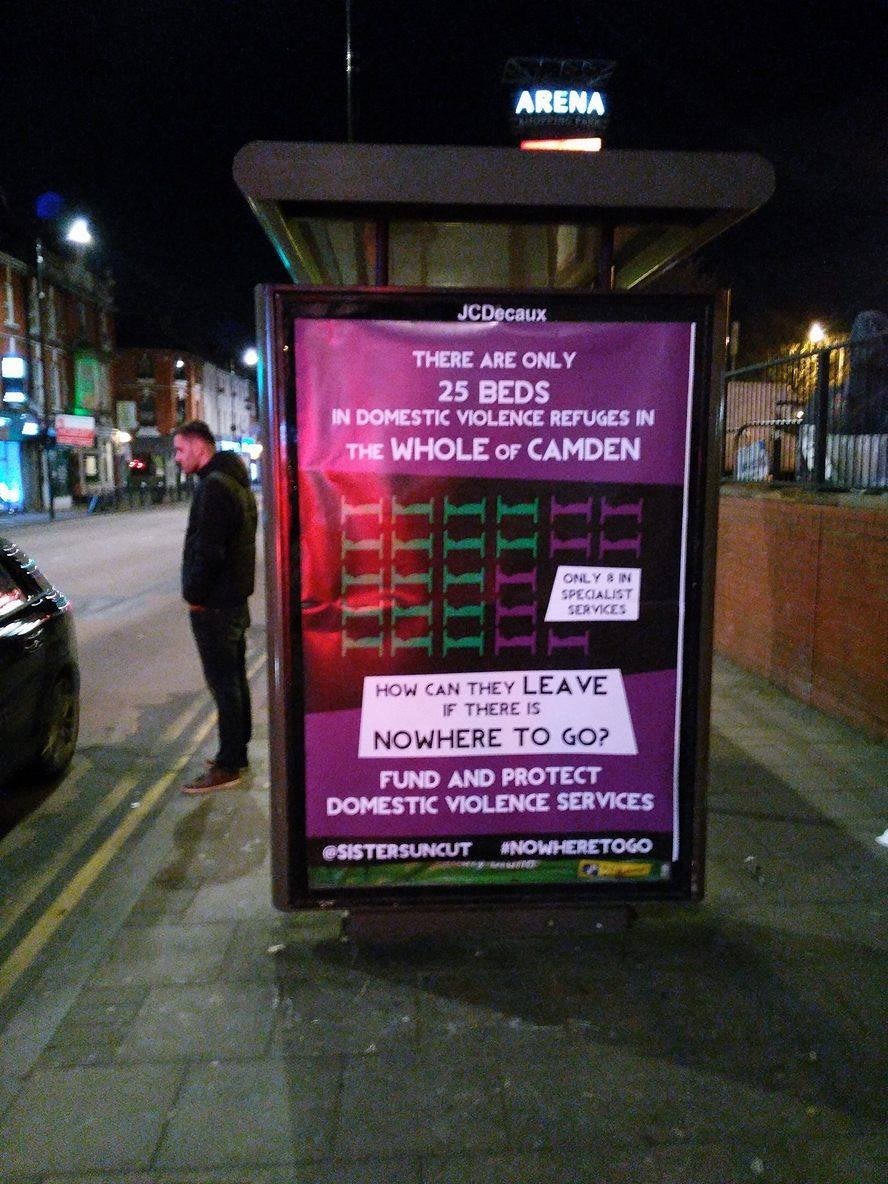London refuges have funding slashed as rates of domestic violence soar
Exclusive: Councils across capital cut support for services helping women suffering abuse by average of 38% since 2010, causing critical shortages in centres that save lives, campaigners say

Refuges for women fleeing domestic violence in London have been hit by major funding cuts at a time when the problem is getting much worse, new figures have revealed.
Councils across the capital have reduced payouts for services helping women suffering abuse by an average of 38 per cent since 2010, it has emerged.
It comes as Metropolitan Police figures show rates of domestic violence are surging.
In 2014/2015, the Met recorded around 145,000 incidents of domestic abuse, a staggering increase of 72 per cent since 2007/2008.
Nationally, campaigners say two women a week are killed by abusive current and ex-partners.
Freedom of Information requests revealed that in 2010, the average London borough spent £324,000 on maintaining domestic violence refuges. By 2016, this had fallen to £202,000.
Haringey Council oversaw the most dramatic reduction in its budget for refuges, imposing a 75 per cent cut in funding during this period.
As a result of these cuts, Haringey has lost fourteen spaces for women fleeing domestic violence, and seen the closure of three refuges, one a specialist service for Asian women.
A spokesperson for Haringey Council said: “Although refuge provision has changed since 2010, Haringey has commissioned a specialist floating support service for £144,000 per year, a high risk Independent Domestic Violence Advisor (IDVA) service for over £200,000.”
IDVAs are employed specifically to guide survivors of domestic violence through the legal service, while floating support is an outreach service for individuals who are able to remain in their own home.

Funding for domestic violence is not ring-fenced, and so it is up to each individual council to determine how much they spend.
As a result, there is a huge discrepancy in domestic violence budgets: Hackney, the best-funded borough, spent £440,000 on its refuge services in 2016.
Redbridge, which spent the least, stated that it had spent just £84,000, less than a quarter of Hackney’s budget.
Redbridge Council told The Independent the contractor hired by the local authority to provide refuges had requested this reduced figure in its annual tendering process.
There is also significant variation in the number of beds available for women fleeing domestic abuse. Harrow and Hillingdon Council fund just six beds each, while Lambeth provides 52.
As well as funding from local authorities and charitable donations, many refuges rely heavily on housing benefit from survivors to operate.
Last year, as a result of the Government's plans to cap housing benefit, Women's aid found that 67 per cent of refuges in England were at risk of closure.
However, after intense pressure from domestic violence charities and campaign groups, the Government reversed the policy, and said refuges would be exempt from the cap.
In 2015, Women’s Aid found that refuges were forced to turn away two-thirds of all women fleeing domestic violence, most often because of a lack of available space.
For women of black and ethnic minority origin, the number of refusals rises to 4 in 5, according to research by Imkaan, an charity advocating for the rights of BME survivors of abuse.
Marai Larasi, chief executive of Imkaan, said: “London benefits from having well-established, diverse refuge provision, and we are proud of this, but FOI data sadly confirms the information that we have received from Imkaan members, that specialist BME women's organisations have been disproportionately affected by cuts to refuge budgets.
“We know that in some areas BME organisations have taken a huge hit with over 40 per cent of their refuge funding being cut, while in other areas, the local authority cut provision by choosing not to include specialist BME provision in their contracts.
“Such draconian approaches have a direct impact on critical services and the women and children that they support. We need the Government to urgently commit to developing a sustainable funding strategy which ensures that no woman or child is left behind.”

A spokesperson for domestic violence campaign group Sisters Uncut said: “Domestic violence services are a lifeline for those women fleeing violence, yet brutal cuts from the central government mean there are simply not enough to meet demand.”
“Theresa May has recently said she wants to ‘transform how we think about domestic violence’ with new legislation.
“Sisters Uncut are therefore calling on Theresa May to put her money where her mouth is and commit funding to life-saving services that are running on a shoestring, if not already closed.”
Join our commenting forum
Join thought-provoking conversations, follow other Independent readers and see their replies
Comments
Bookmark popover
Removed from bookmarks